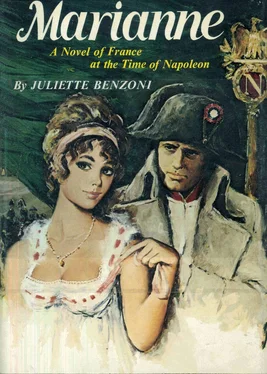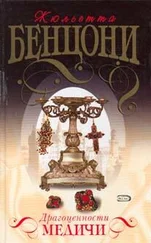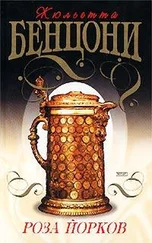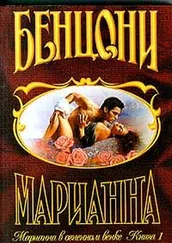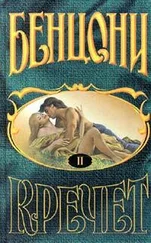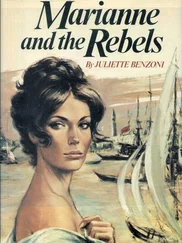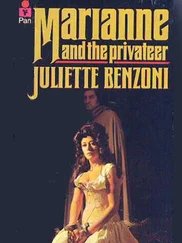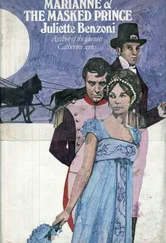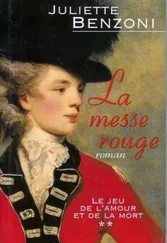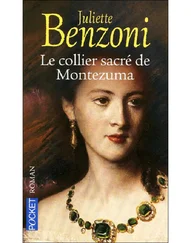As he led her out into the hall to say their farewells to the prince, Francis glanced at Marianne's hands clasped round the locket.
'An odd present for a young bride,' he murmured, 'I hope you are not superstitious?'
She smiled bravely, thrusting away the momentary cloud.
'What is given in good faith cannot bring bad luck. This gift is precious to me, Francis.'
'Truly? I am glad. But, for the love of heaven Marianne, put the precious locket away in a box and don't wear it. Why do these damned demented Frenchmen always have to be waving the shadow of their frightful guillotine? I suppose it helps them keep alive their grievances and their thirst for revenge. And, I daresay, to forget that Napoleon is in power and they are only reflections of a vanished age.'
'You are very hard on my poor countrymen, Francis. Do you forget how much Madame has suffered? And I find it strange, that you, an Englishman, have a good word to say for the Emperor.'
'I detest Napoleon as much as I pity Madame Royale,' Francis retorted coldly. 'But I cannot approve of those who find it so easy to ignore the facts. But after all, politics seems to me a dry subject for your pretty head. Forget all about the revolution, Marianne, and concentrate on pleasing me.'
Dinner that night seemed to Marianne incredibly long and tedious. There were few guests and little gaiety. Certainly, it bore little resemblance to a wedding breakfast. Besides the young couple there were only the abbé de Chazay, Lord Moira, Jason Beaufort and Ivy St. Albans and the guests had too little in common for lively conversation. The talk, at first commonplace, gradually died away. The abbé de Chazay whose thoughts were no doubt already on his coming journey and the carriage which waited, ready harnessed, at the door, spoke little, the American not at all, contenting himself with observing Marianne with embarrassing attention. Only Francis and Moira talked about horses and hunting. Lady St Albans, following the bride's example, took no part in the discussion.
Ivy's dainty fingers were engaged in the mechanical rolling of little pellets of bread on the damask tablecloth. Marianne wondered why it was she could not bring herself to like this exquisite cousin of Francis.
Apart from her never allowing anyone to forget her connection with Lord Cranmere and her way of treating Marianne like a slightly backward child, Ivy St. Albans was the perfect picture of gracious sweetness. Some years older than Marianne, she was of medium height but her fairylike slenderness and still more the knot of pale gold ringlets which she wore high on her head made her seem taller. She had very delicate features, illuminated by a pair of languishing china blue eyes but although her mouth was as small as all the current canons of beauty could demand, there was something about her which Marianne found faintly shocking. It may have been her smile which had too close a look of Francis, perhaps that irreproachable and utterly feminine elegance which made the young girl feel, beside her, both countryfied and overdressed.
This evening was worse than usual. In her spreading lace-trimmed panniers, Marianne felt like some massive Chinese vase placed next to a fragile Tanara figurine. Her outdated furbelows only served to set off to advantage Ivy's wisp of a clinging muslin gown, the same blue as her eyes, cut low in the bosom to reveal the soft curve of her shoulders and caught in below her breasts by a chain of fine antique cameos that matched the fillet binding her fair curls. A long matching scarf completed an ensemble which, while stunningly simple, owed much of its effect to the perfection of the figure it covered. Ivy St. Albans, like many other Englishwomen, had taken to wearing muslin winter and summer because Napoleon was known to dislike it so much that the ladies of his court were virtually forbidden to wear it.
Marianne could never picture Ivy in anything but muslin. She had been wearing a dress of white muslin when Marianne met her for the first time, that day last summer in Bath. Lady Ellis had dragged a cross and distinctly unwilling Marianne away from her beloved woods with the two-fold object of taking the cure herself and at the same time introducing her niece into society. But the girl had felt instantly out of place amid the elegant crowds thronging the famous spa. There was too much noise, too many people, too much gossip, too many shrill, overdressed women and too many dandies with their bored and insolent airs and their passion for wagers.
And then, one morning as the two women were driving along Milsom Street after making some purchases, Lady Ellis uttered a cry and ordered the driver to stop. A couple were passing by on foot and Marianne's heart beat unaccountably faster. The woman was beautiful, certainly, and the height of elegance in the simple white dress which served to set off a miraculous chip-straw bonnet covered with a froth of delicate lace but Marianne had no eyes for her except to envy her her escort. He was surely quite the finest man that ever was. Moreover, it was to him that Lady Ellis's rapturous exclamation was addressed.
'Francis, Francis Cranmere! My dear child, how good to see you again. Don't tell me you don't recognize me?'
The gentleman's handsome, disdainful mouth had curved into a smile.
'Lady Selton!' He responded instantly, 'could you doubt my knowing you? England is full of women but I'll take my oath there is only one Ellis Selton. Your most obedient, my dear lady.'
Removing the beaver hat he wore so elegantly tilted to one side, he bowed over Lady Selton's fingertips and her niece was able to observe, to her considerable astonishment, that her spinster aunt was quite flushed with pleasure. However, the young man's grey eyes immediately travelled on inquiringly to Marianne and she felt herself instantly purple with embarrassment. In her plain cambric dress adorned, thanks to the clever fingers of her maid, only with a single embroidered panel she felt suddenly horribly dowdy. Any comparison between herself and the lovely stranger was so little to her advantage that she felt ready to die of shame and was incapable of saying anything intelligible when her aunt presented her to: 'My dear Francis, the son of one of my oldest and dearest friends', and then to 'his charming cousin, Lady St. Albans'.
A few words more, an exchange of addresses, and then they parted with promises to meet again. The carriage moved away with Marianne on the verge of tears. All at once, she wanted desperately to make this fine gentleman notice her, to dazzle him with her wit and brilliance, while he had probably seen her merely as some kind of silly schoolgirl. Her aunt had laughed and teased her about it.
'But there,' she added with a sigh, 'I can scarcely blame you, these Cranmeres are irresistible charmers, and Francis is the living image of his father. No man could ever think seriously of competing with Richard Cranmere.'
'Was he so very much admired?' Marianne asked in a small voice.
'Oh, the women were wild about him, every single one – more's the pity—'
The conversation had gone no further. Lady Ellis had lapsed into a reminiscent silence which the girl did not like to interrupt. She had learned later, by means of interrogating Jenkins, the old housekeeper, that her Aunt Ellis had once been madly in love with Richard Cranmere and had hoped to marry him but he had fallen instead for Marianne's mother, Anne, and Anne was already in love with a French diplomat. On her engagement to Pierre d'Asselnat, Lord Cranmere had gone away. His travels had taken him to India and it was there that he had married and that Francis had been born. The young man had returned home some ten years previously to take possession of a small inheritance not far from Selton Hall. At that time he had called frequently on Lady Ellis, drawn to her by their mutual passion for horses. Then, succumbing to the attractions of London, he had sold the little estate which must have formed the bulk of his fortune and they had not seen him since.
Читать дальше
